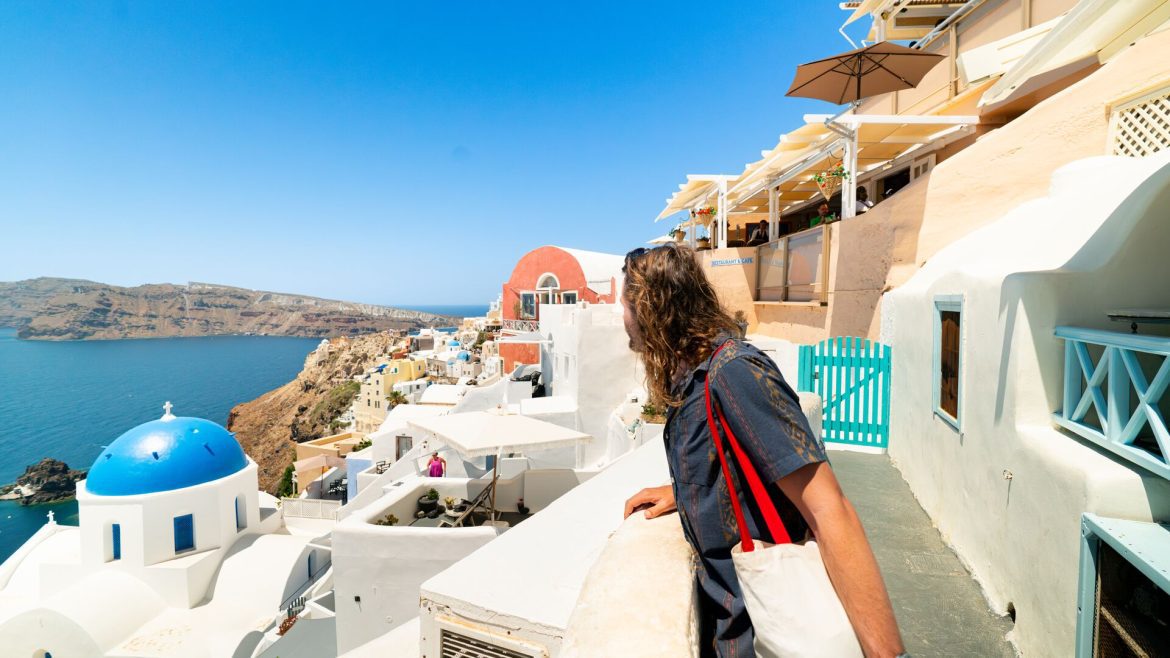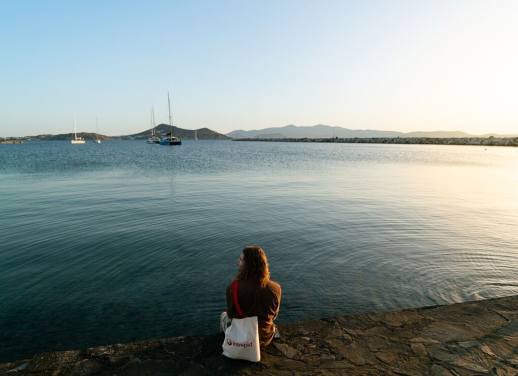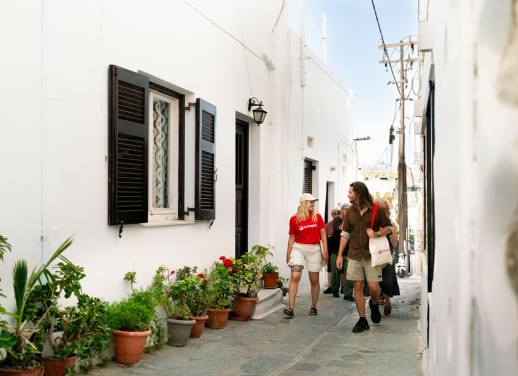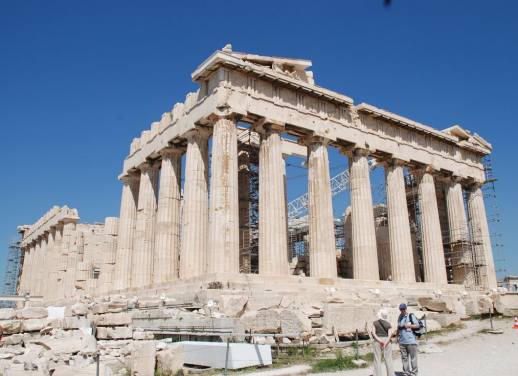From dreamy islands to fiery ouzo, here are some of the things that make Greece, well, Greece.
Travellers from all over the world flock to Greece every year – and who could blame them? This is a land of ancient ruins and clifftop monasteries, where legendary gods rule the skies and ouzo flows like water.
Here are 10 things Greece is known for so you can start dreaming up your trip.
1. Cuisine
Want to visit Greece for the food alone? Great thinking. Like its ruins, Greek cuisine is steeped in thousands of years of tradition. How about visiting a family-owned apiary to uncover the secrets of Greek honey? Or learning how to whip up a batch of lalagia (doughnuts) with a local home cook? Both are highlights of the Greece Real Food Adventure.
Greek cuisine is full of fresh flavours like oregano, thyme, lemon and garlic. Passionate artisans across the country make staples like feta and olive oil, and seafood is abundant on the islands – especially crispy fried calamari, grilled octopus and steamed mussels. Meat lovers might already know moussaka and souvlaki, but what about giouvarlakia (lemony meatball soup), pastitsio (Greek-style pasta bake) and stifado (slow-cooked beef stew)?
And we can’t forget about meze – the Greek take on tapas. These small, savoury dishes are made for sharing slowly, ideally over a few hours with a small carafe of wine while the sun sets. Classics include keftedes (Greek meatballs), dips (spicy feta, taramosalata and tzatziki), dolmades and zucchini balls.
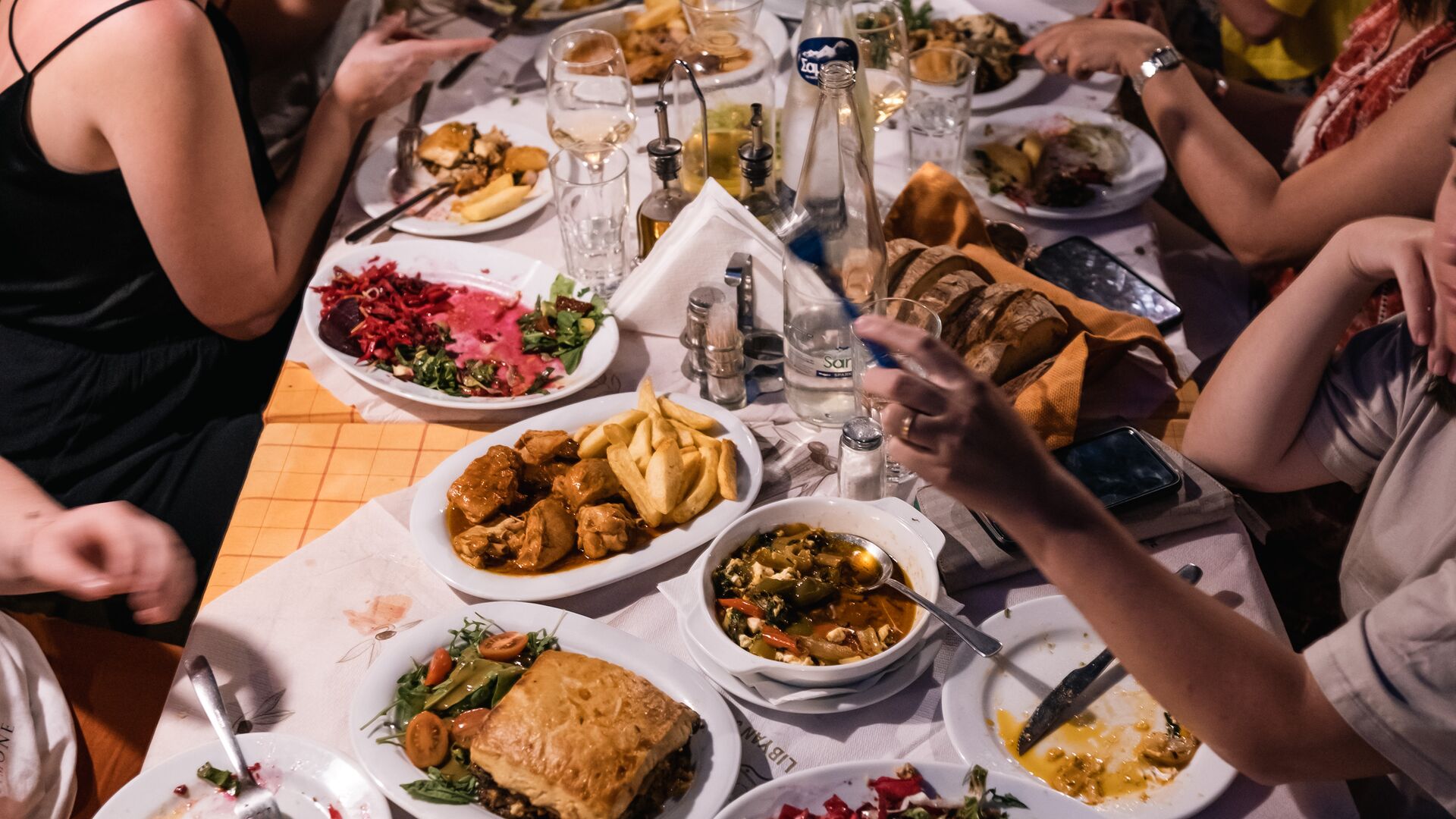
2. Ouzo
When you’re eating meze (or anything else, really!), there’s a good chance you’ll be offered a cold glass of ouzo. Thought to have originated from tsipouro – a strong aniseed spirit first made by monks on Mount Athos – ouzo became Greece’s national drink in the 19th century. And at 37 to 50% ABV, don’t be surprised if it sprouts a few hairs on your chest!
Although it’s served neat in a shot glass, this isn’t a drink to knock back in one go. It usually comes with a glass of ice and water on the side, and the idea is to sip it slowly.
To dive into the world of ouzo, check out Intrepid’s Premium Greece trip, where you’ll visit a distillery and enjoy a tasting.
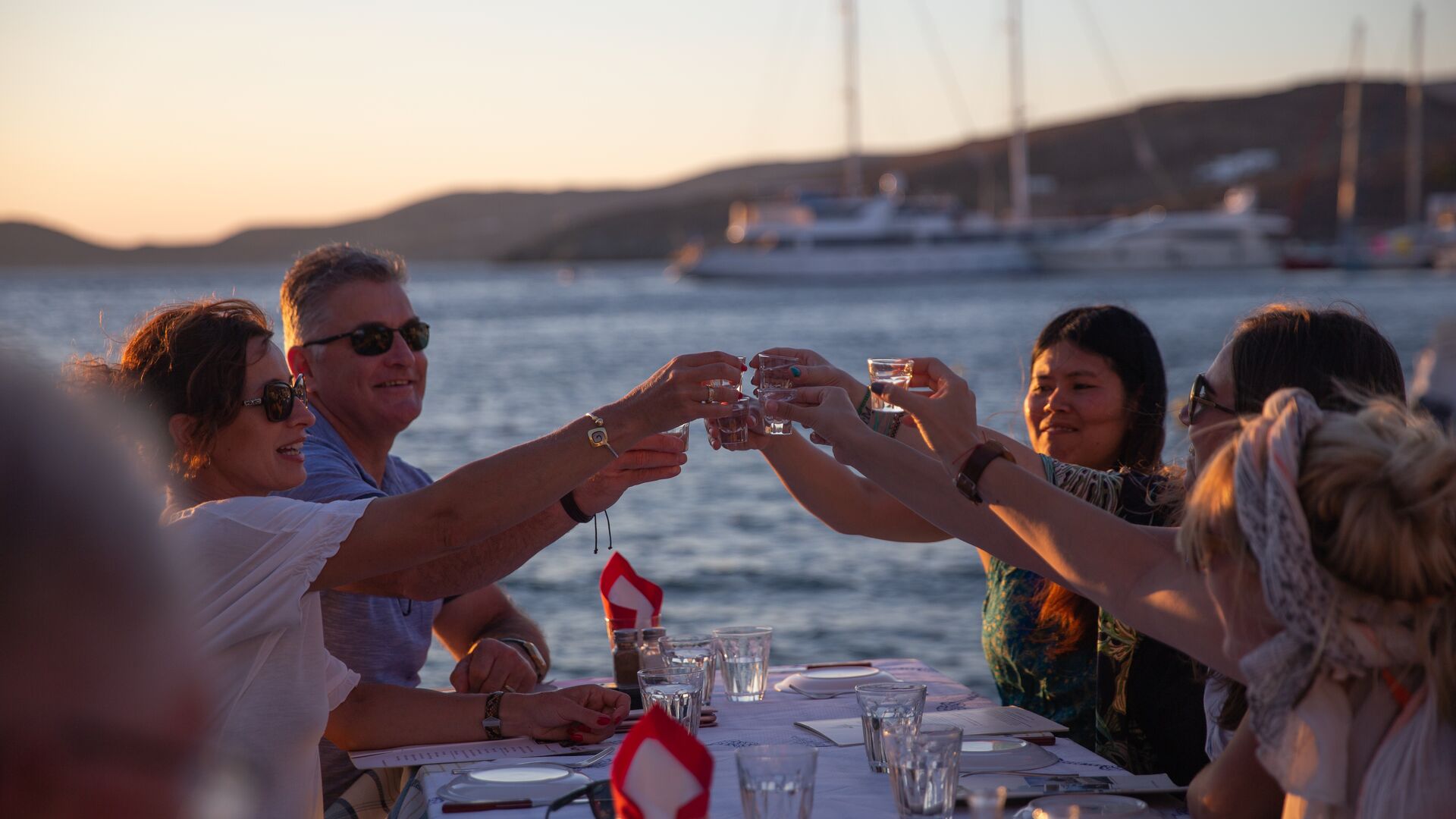
3. The Greek islands
Salty air, white-washed villages and turquoise water. Leaving the Greek islands off this list would be sacrilege – like eating tzatziki without pita. Greece has over 6000 islands and islets scattered like shiny shells across the Aegean and Ionian seas. Of these, around 227 are inhabited (by humans, that is – many are ruled by goats), so take your pick of island-hopping adventures.
Well-known spots include Santorini, Mykonos, Corfu and Crete. But if you’re keen to max out on laidback vibes, head to the quieter islands of Sifnos, Folegandros, Syros or Kefalonia.
You can get around easily with the extensive Greek ferry system, but do you know what blows the ferry out of the water? A sailing trip. With a local skipper at the helm of your own private yacht, you can fall asleep to the sound of water lapping against the hull, wake up and jump straight in for a swim and moor up in sleepy fishing villages far from the crowds. It’s island hopping done right.
Read more: My life-changing sailing trip in Greece
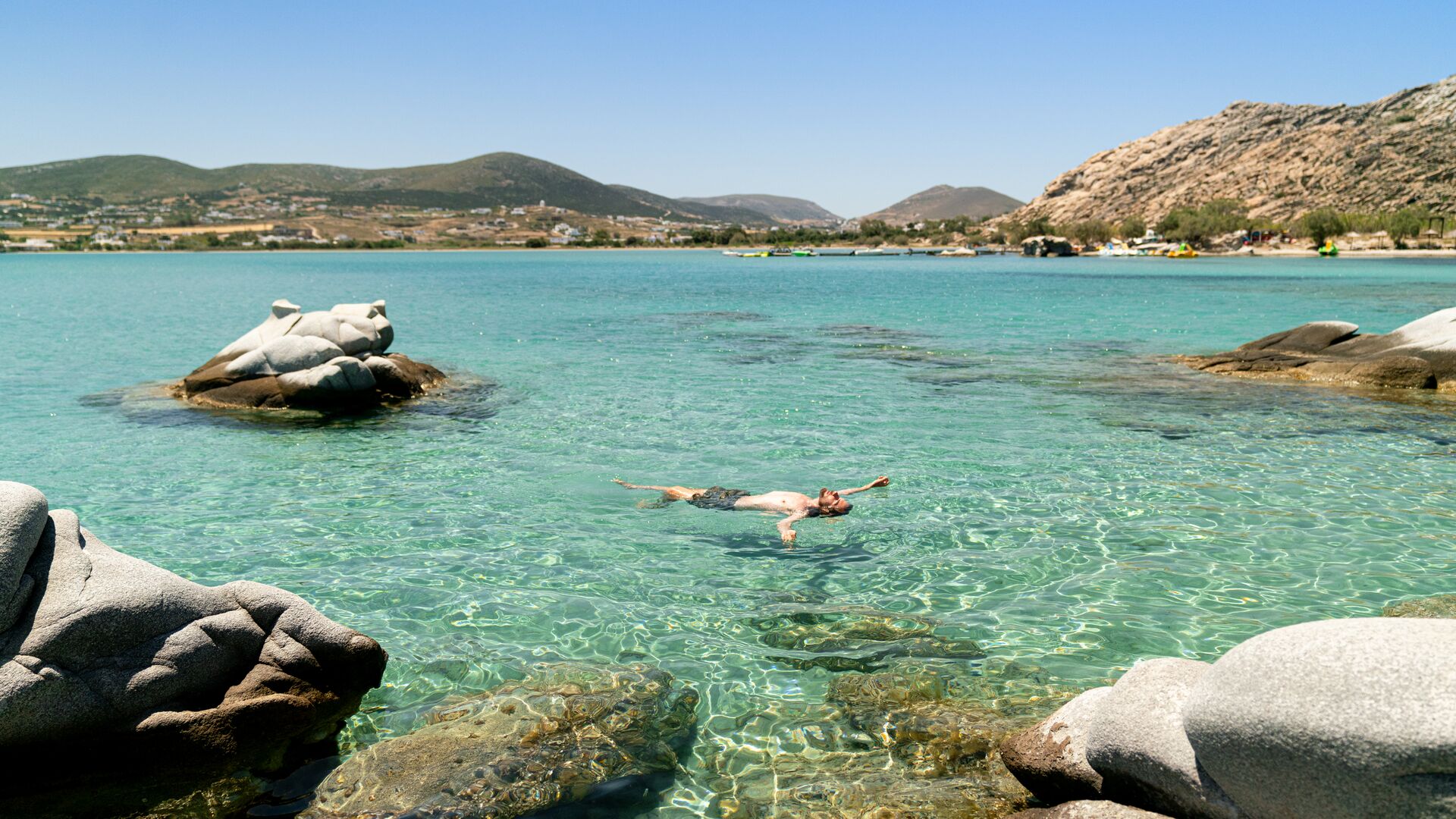
4. Ancient ruins
In a country that came up with things like democracy and philosophy (no biggie), it’s no surprise Greece has some of the world’s most famous ruins. There are 19 sites on the UNESCO World Heritage List, with heaps more across the country. Big-ticket sites include the Acropolis which looms over Athens, the Sanctuary of Delphi and the ancient city of Olympia.
And they’re not limited to the mainland either. The Greek islands are scattered with the archaeological bones of ancient civilisations – from the Minoan palace of Knossos in Crete to the Terrace of the Lions statues in Delos.
Honestly, plonk a history geek anywhere in Greece and they’ll be in their element.
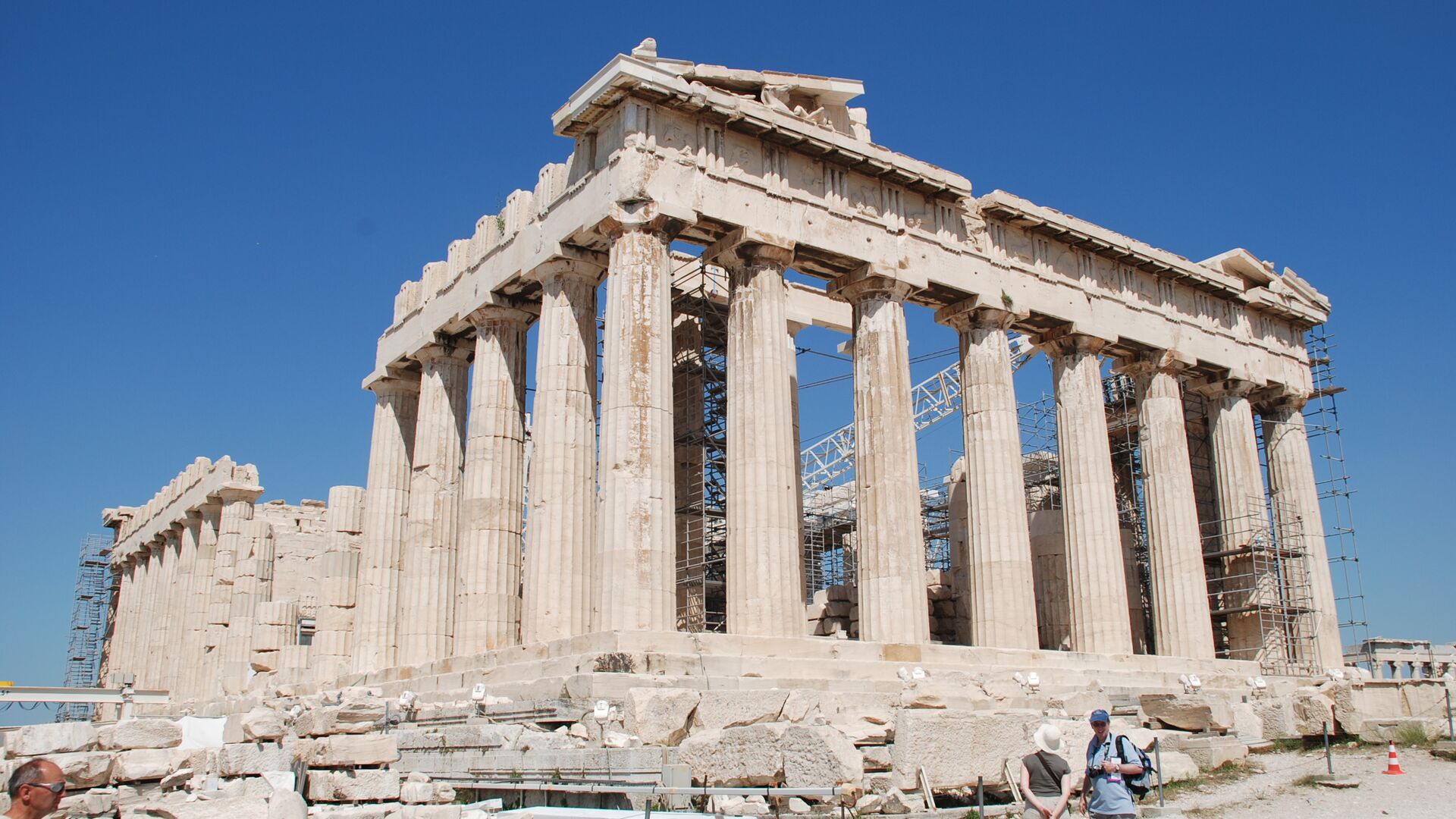
5. Mythology
Myths were how the ancient Greeks made sense of the world – explaining the origin of life, the forces of nature and the chaos that sometimes unfolds. Pandora’s Box warns about the consequences of unchecked curiosity, Medusa teaches us about jealousy, and Perseus highlights the importance of courage and fighting for your family.
Traditional worship of the Greek gods might not be mainstream anymore, but there’s no denying the influence these legendary tales continue to have on art, Hollywood, literature and even psychology.
6. Monasteries
Most Greeks are Eastern Orthodox Christians, and a great way to learn about the history and influence of the religion is at the monasteries dotted around the country. Many were built on steep cliffs and rocky slopes to be closer to God – including the UNESCO-listed Hanging Monasteries of Meteora.
These 24 ‘hanging’ monasteries sit precariously on karst pinnacles that rise up to 550 metres tall and six are still home to practising nuns and monks. Inside, you’ll find intricate woodcarvings and centuries-old frescoes. But the most impressive thing? The views of the surrounding mountains. Stick around for sunset if you can – you won’t regret it.
Explore Meteora’s clifftop monasteries on Intrepid’s Premium Greece
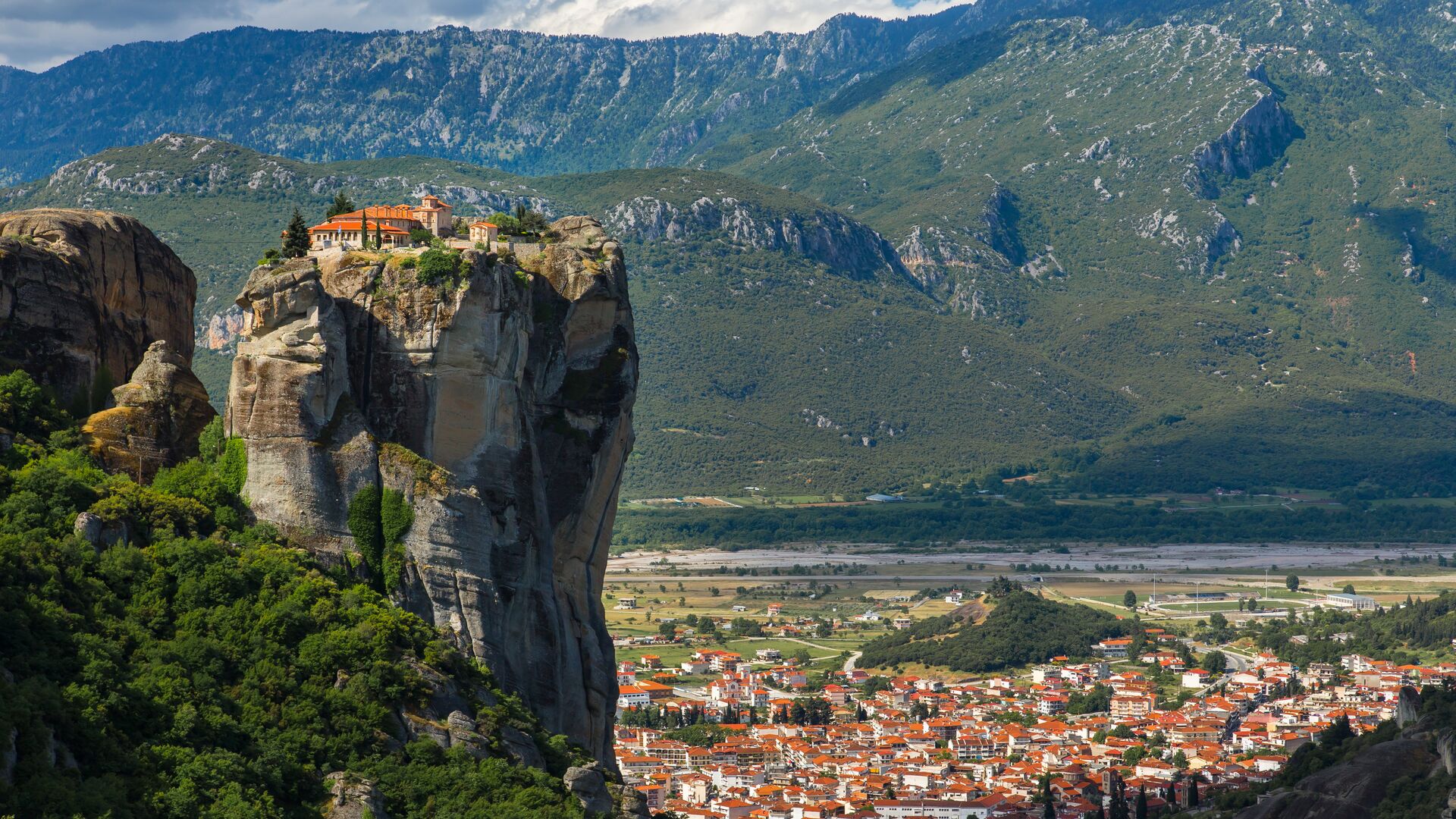
7. Philosophy
Ever described yourself as a stoic or a hedonist? Then you’re already dipping into Greek philosophy. The ancient Greeks were among the first to swap myth for reason and start asking the big questions – like what the universe is made of, and what makes a moral choice.
Some of the world’s most influential thinkers – including Socrates, Aristotle and Plato – once strolled through the streets of Athens debating these very ideas, helping shape modern civilisation as we now know it.
8. Democracy
The Greeks also invented democracy – ‘demos’ means people and ‘kratos’ means rule. This revolutionary concept was spearheaded by Cleisthenes, known as the ‘Father of Democracy’, in Athens in the 6th century BCE. Eligible citizens gathered in the Agora to debate laws and vote with shards of broken pottery.
Though now in ruins, you can still walk through the Agora today. As you wander past the giant pillars of the Temple of Hephaestus and the reconstructed stoa, it’s easy to imagine the bustling scenes that played out here thousands of years ago.
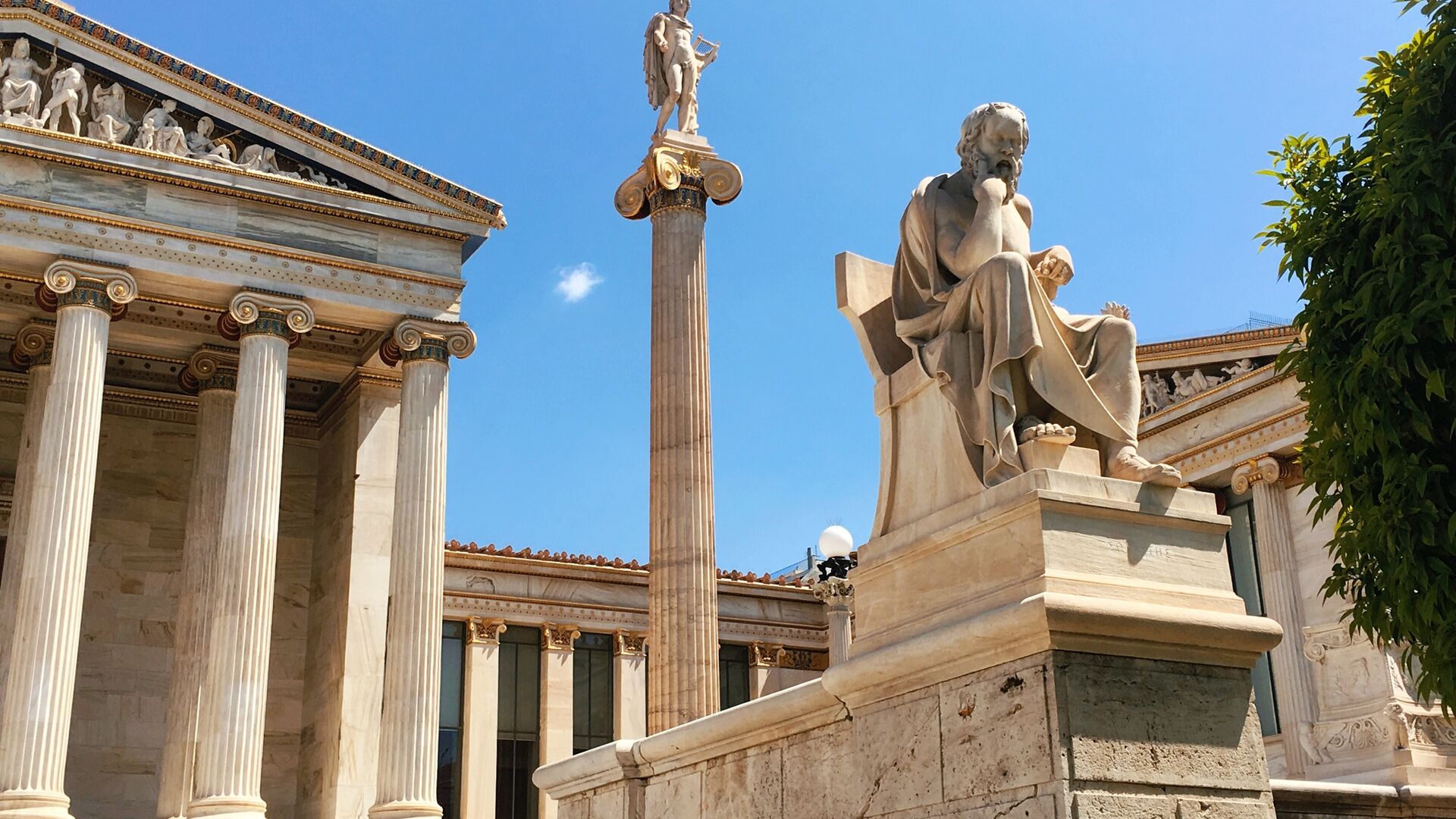
9. Language
Greek is one of the oldest living languages, with a distinct alphabet and no close ties to other languages. It’s the official language of both Greece and Cyprus and has around 14 million speakers worldwide. It’s beautifully complex, so good luck asking how to get to the airport (πώς μπορώ να φτάσω στο αεροδρόμιο) without a few laughs!
But don’t stress. Even learning a few basic phrases like hello, goodbye, thank you, etc. goes a long way in connecting with the people you meet.
10. The Olympic Games
We might be glued to our sofas and screens when the Olympic Games roll around every four years, but have you ever wondered how, when and where it all began? Well, it’s all thanks to Zeus – king of the gods and god of the skies.
The first games were held in Olympia in 776 BC as a religious festival in honour of Zeus, featuring sacrifices, gifts and a stadion footrace. Roman Emperor Theodosius banned the games, along with other pagan festivals, in 393 AD. They were later revived as a secular event in 1896. Today, you can visit the ruins of Olympia and walk a lap of the ancient stadion.
Ready to go? Explore Greece on a small group adventure with Intrepid.

